Handwriting
We’ve been having a big focus on handwriting and presentation across all our learning – not just in writing books.
Our cursive handwriting scheme has just three rules. Please refer to this when your child is writing at home, for example learning their spellings. Before writing, ask your child about the lazy eight handwriting warm up that we do.
 There are groups of letters that follow the same pattern when we write them.
There are groups of letters that follow the same pattern when we write them.

We’ve been using an exciting prop this week to do big movements when writing letters.



Material testers
This week during our What’s the matter? science mini topic, Year 2 had an interesting investigation to carry out from Mr Vango.

Throughout the investigation, we used lots of science skills.
Starting with questioning, considering what equipment we’d need and the method for the investigation, we then focused on predicting which material would be the best for the tent. We recognised that predicting is a skill we also use in reading. We were then ready to get testing. Using observation skills was key to our investigation so we could make a conclusion about the materials.

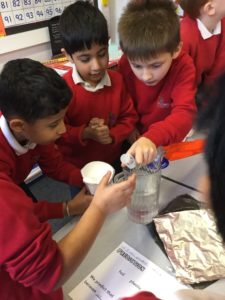
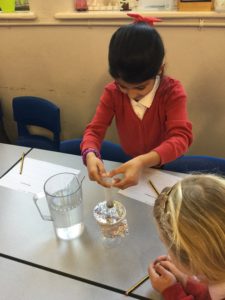
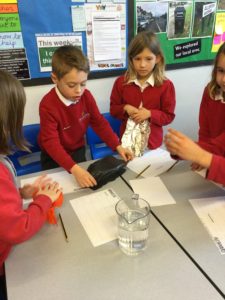
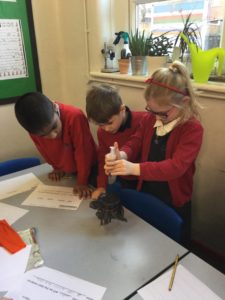





Ask your child what material they concluded was the best one to use for the tent.
Well done to Vedant who realised that to make the test fair we would need to add the same amount of water from the syringe when testing each material.
Examples of good spelling practice
There were lots of great examples of spellings practice from Year 6 this week. Most children had made sure they’d practised across at least three days (just for 5-10 minutes each time) and they’d got a parent to sign that they’d done this.
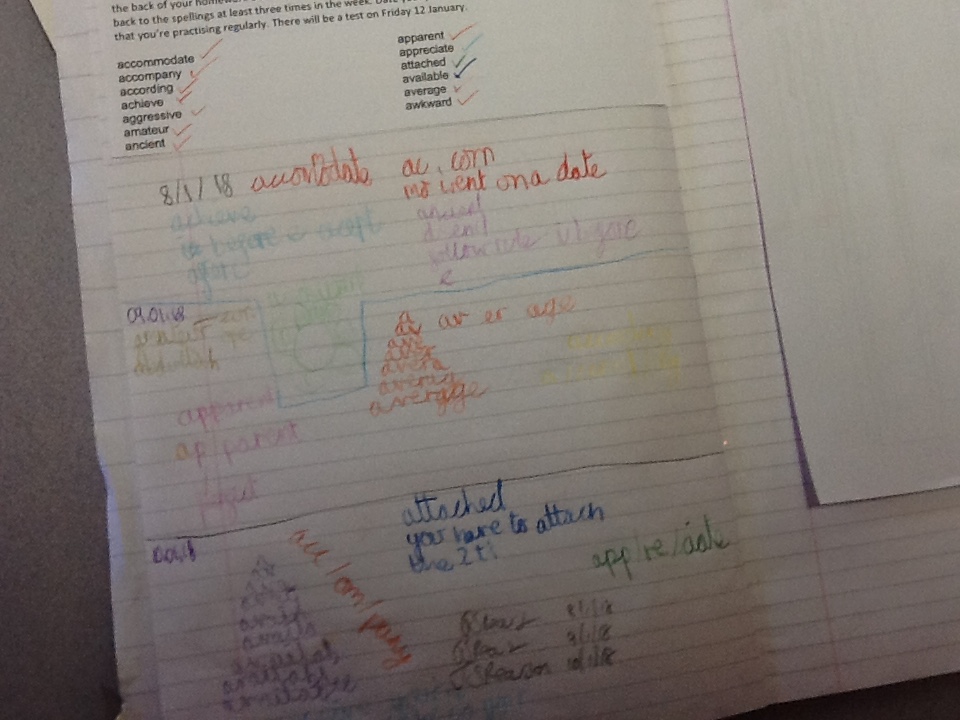
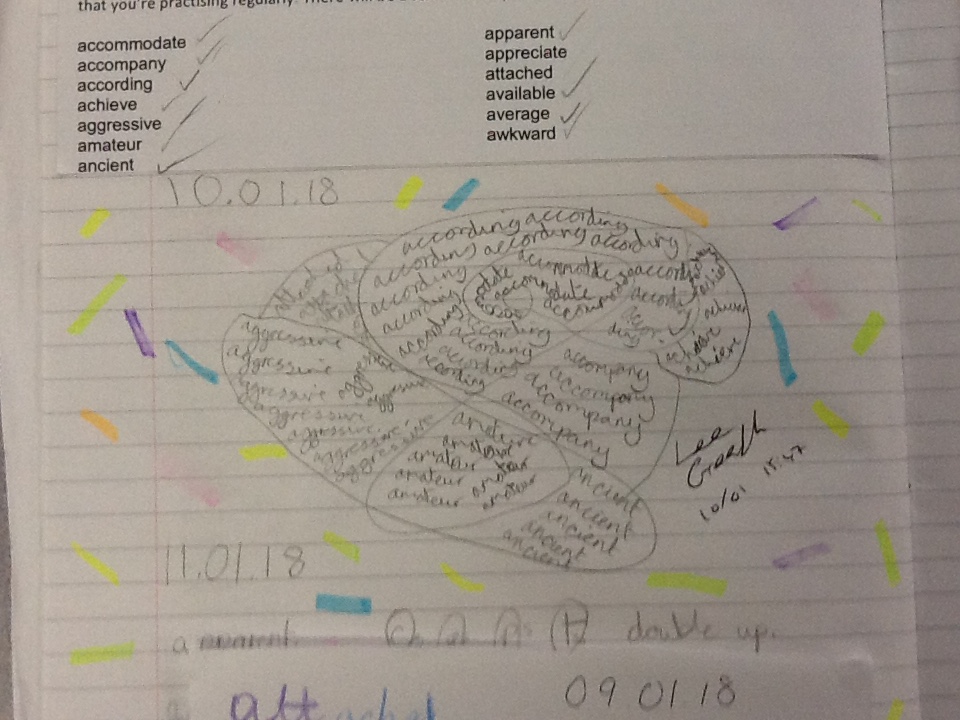
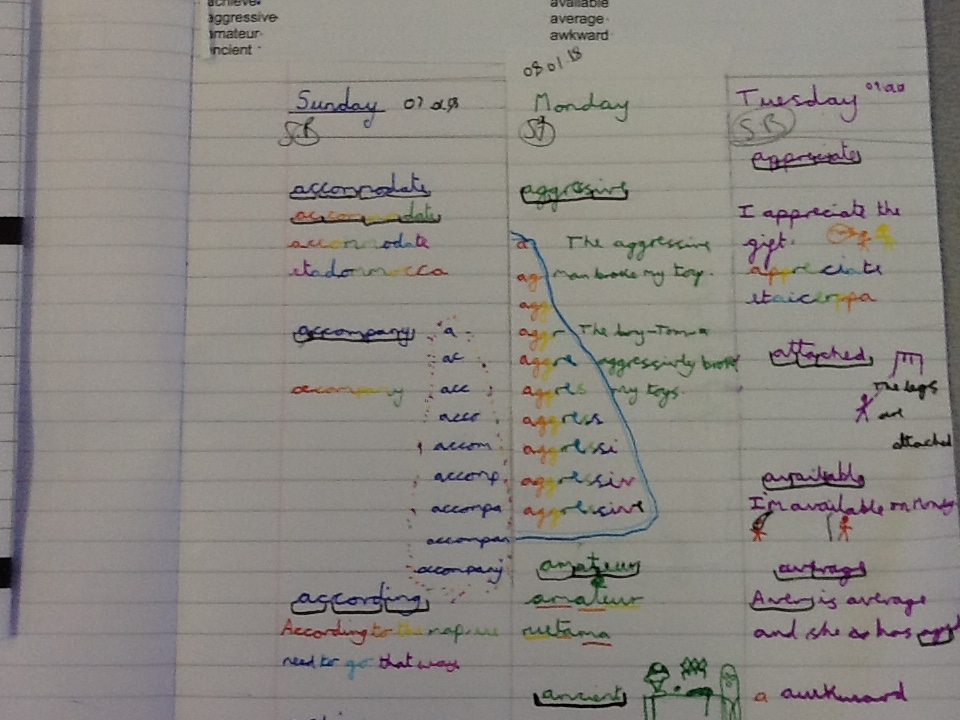
Offline Computing
Recently, in our computing sessions, we’ve been learning all about the skills of computing without using a computer (offline). To learn about algorithms (ask your child what an algorithm is) and repetition (again, ask your child to explain this term to you) we played a simple game.
We had to create an algorithm that would get us from ‘start’ to ‘finish’. Then, as an added challenge, we had to find the quickest route. Some of us even took it a step further and added more obstacles to the grid to make the algorithm more tricky. When we shared our algorithms, some of us realised that we’d made a mistake so we had to use our de-_____ skills (can your child fill in the blank?).
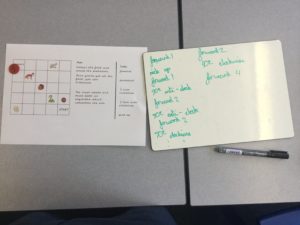
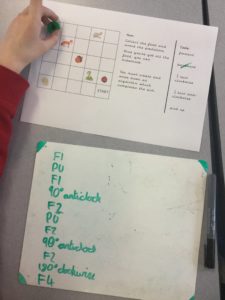
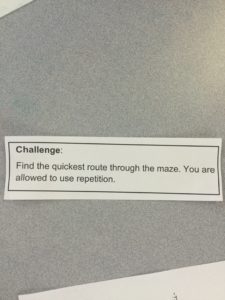
To learn more about computing, visit Barefoot Computing. It’s a great resource to help teachers, parents and children understand some of the terminology associated with computing.
Solution Science
How is this egg floating in water?
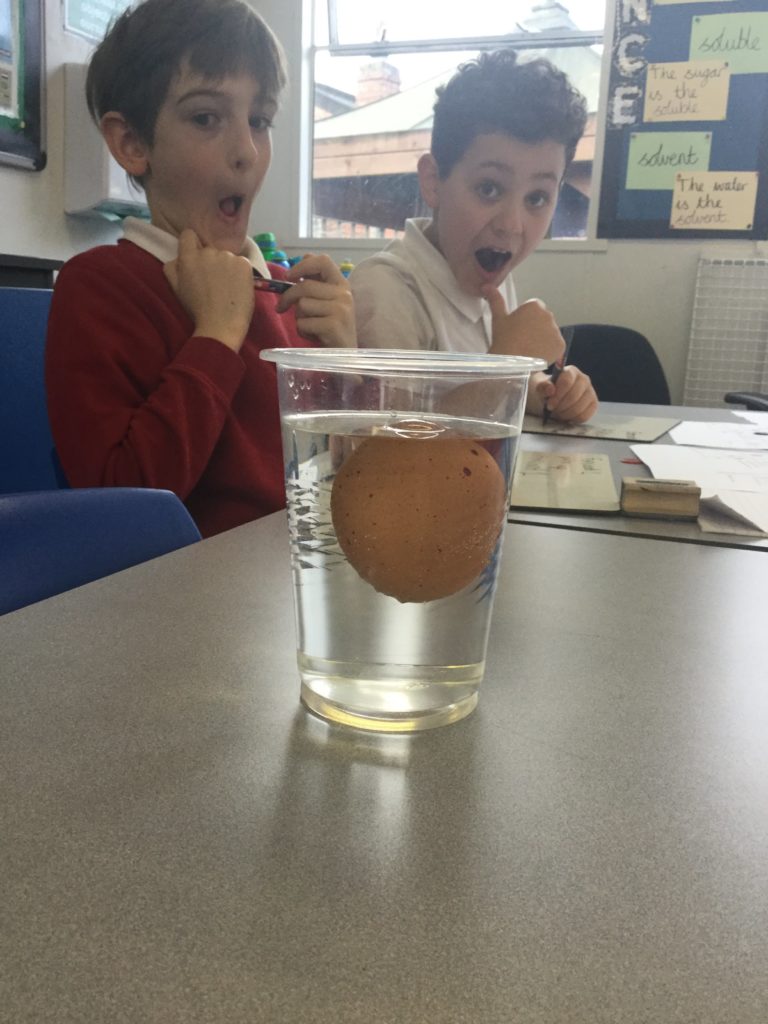
Ask your child to explain how we made this fresh egg float. Look out for the following words:
- density
- solution
- solute
- particles
Will it sink or will it float?
As part of learning about solutions during our ‘What’s the Matter?’ topic, we explored floating and sinking.
In fresh water, a fresh egg will sink.
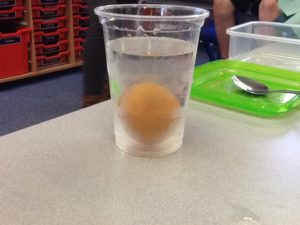
However, if you add salt to create a salt solution…
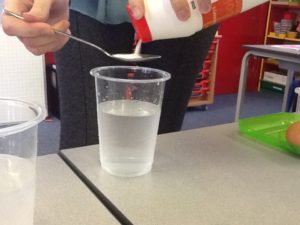
…the egg will float.
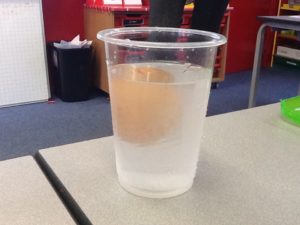
At home, see whether your child can explain why this is. They should use our key word: dense.
We then predicted that the same would happen if we used sugar to create the solution.
The fresh egg sunk, like before.
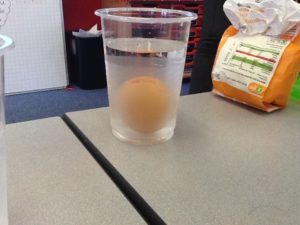
We stirred in the sugar to make sure it created a solution…
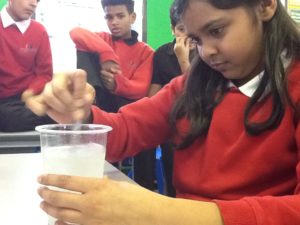
…and eventually the egg floated.

We needed to add more sugar to make it float than we did for the salt. See whether your child can say why we thought we needed to use more sugar. They’ll need to use the key word: particles.
A great team effort!
In our Living and Learning lesson this week, we were discussing how to work well as a team and Year 2 have definitely shown that in our assembly today.
Well done to all the children for learning their lines, reminding each other when to speak and listening to others when they were reading.
Thank you to Clare Luther, author and Evie’s auntie, who inspired the children with her visit to class last week.
Finally, thank you for coming to watch the children and supporting them with learning their lines.
Hope you’ve been reading this evening!
Class assembly
The children have been busy rehearsing and look forward to welcoming you to watch our class assembly this afternoon.
It starts at 2:40pm. We hope to see you then.
Using commas
In Year 2, one of our writing objectives is to use commas correctly in a list.
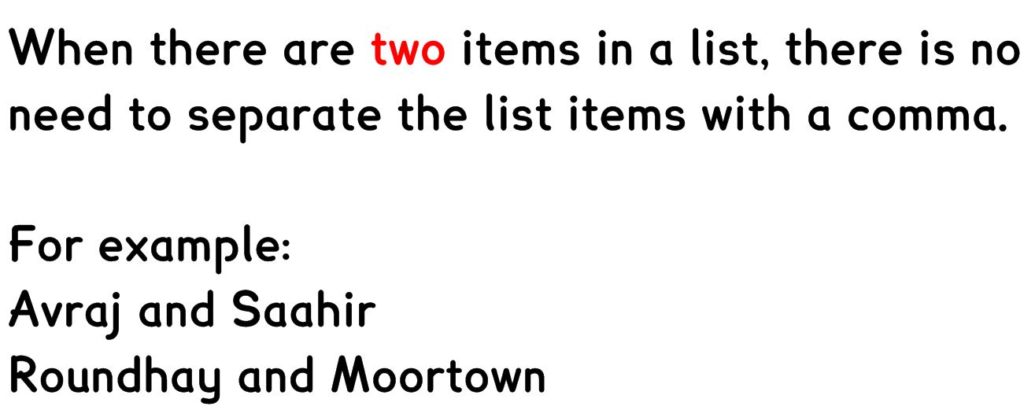


Ask your child to check the following sentences and spot the correct one. Can they tell you why the others are not correct?

Can your child finish this sentence using the spellings for this week as a list.
This week, our spellings are …
Phonics
We have begun phase 3 of the ‘Letters and Sounds’ phonics programme.
The purpose of this phase is to:
- teach more graphemes, most of which are made of two letters, for example, ‘oa’ as in boat
- practise blending and segmenting a wider set of CVC words, for example, fizz, chip, sheep, light
- learn all letter names and begin to form them correctly
- read more tricky words and begin to spell some of them
- read and write words in phrases and sentences
Here are some examples of words your children will be reading: tail, week, right, soap, food, park, burn, cord, town, soil
Tricky words
During phase 3 the children will learn more ‘tricky words’: he, she, we, me, be, was, my, you, her, they, all, said.
In addition, during this phase children will be expected to begin to write sentences independently.
Our next phonics mornings will be held in February.